|
DAVINCI - ANNUNCIATION - PAGE 3
The
main plot involves newlywed Petruchio’s attempt to 'tame'
Katherine and conform her to societal expectations of a submissive wife.
A comedy written by
William Shakespeare in the early 1590s.
|
Taming of the Shrew |
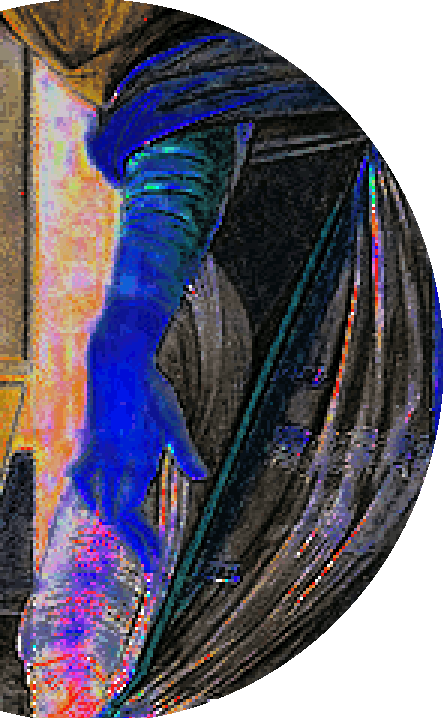
Bianca or is it Diana? |
- The story begins when a
nobleman plays a trick on a beggar named Christopher Sly,
treating Sly as if he is a Lord who has amnesia and lost his
memory.
- Sly was drunk and passed out in a tavern and the
nobleman's servants dressed him in finer apparel as part of the
prank.
- The nobleman and his men then dressed up as servants
and gave Sly a young
male page who was disguised as Sly's supposed wife.
What’s here? One dead, or drunk? See doth he
breathe.
(Shakespeare, Taming of the Shrew) |
- Sly
is a man who is easily dominated by women, set up as a foil to Petruchio,
meaning he is the exact opposite to the main protagonist in
the story, Petruchio, who tamed females.
- A
play is then staged in the nobleman's house for Sly by
traveling actors; so the story is a play within a play.
Am I a lord, and have I such a lady?
Or do I dream? Or have I dreamed till now?
I do not sleep: I see, I hear, I speak,
I smell sweet savors, and I feel soft things.
(Shakespeare, Taming of the Shrew) |
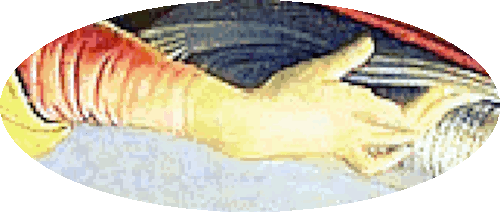
Setting the mouse
trap |
- The true meaning of shrew according to 16th and 17th
century nature writers was a small creature that resembles a
mole.
- A mole has a long snout, short tail and small teeth
and is a rodent.
- Most of the writers referred to the
shrew as a 'beast' because they were thought to be more
dangerous than a mouse or vole due to their poisoness bite,
strong enough to seriously injure or kill horses and cows.
O monstrous beast, how like a swine he lies!
(Shakespeare, Taming of the Shrew) |
-
Shakespeare’s England was a deeply misogynistic society and
the word shrew was considered a women who was wicked and badly
behaved.
- After all, a woman was supposed to be mousey and
quiet, obedient, unobtrusive, chaste, and never question a
man.
- A woman who opened her mouth and spoke out was
considered like a shrew, a beast.
For Shakespeare’s early modern audience, a shrew, or a shrewish person, was someone who lacked self-control, or who posed a threat to others. Simply put, someone or something in need of taming.
(shakespearesglobe.com) |

Sisters
Katherine and Bianca |
- Baptista Minola, a wealthy merchant
from Padua in Italy, had two daughters of marriageable age.
- Bianca was
the youngest and her sister Katherine, who was a shrew, was
the eldest.
- Bianca was considered soft-spoken, mild-tempered, obedient, and the opposite of her sister
Katherine.
- She is depicted as an angel as opposed to Katherine, who is the 'shrew' of the story and portrayed as rebellious, devilish, and ill-tempered.
The men around her have a range of things to say about Katherine. Petruchio calls her ‘bonny Kate’, ‘the prettiest Kate in Christendom’, ‘Kate of Kate Hall’ and even ‘super dainty Kate’. But he and many others also call her ‘cursed and shrewd’. In all, Katherine gets called a ‘shrew’ eight times in the course of the play.
(shakespearesglobe.com) |

Lucentio, a romantic
student |
- Lucentio, a student, arrived in Padua with his servant,
Tranio, to further his studies.
- When Lucentio saw Bianca, the pretty younger daughter,
walking down the street, he decided he must woo her.
- When men described Bianca they talked about her looks: sweet, fair,
and beautiful Bianca.
I am arrived for fruitful Lombardy,
The pleasant garden of great Italy,
And by my father’s love and leave am armed
With his goodwill and thy good company.
(Shakespeare, Taming of the Shrew) |
- Bianca already has two suitors, Gremio and Hortensio, although she
didn't care for either.
- Bianca's father, Baptista,
declared that Bianca could not marry before her strong-willed older sister,
Katherine.
- This is a tradition in their culture in respect to the
eldest daughter and Baptista was not about to waiver.
I pray you, sir, is it your will To make a stale
of me amongst these mates?
(Shakespeare, Taming of the Shrew) |

Lucentio loves Bianca |
- Lucentio loved
Bianca but
knew he could not court her until her shrewish older sister
Katherine wed.
- Katherine was considered a shrew
because she was outspoken and none of the men liked that.
-
She was known throughout Padua for her ‘scolding tongue’ and
for that, she was considered cursed.
Mark’d you not how her sister Began to scold and
raise up such a storm That mortal ears might hardly
endure to din?
(Shakespeare, Taming of the Shrew) |
- Not many
were interested in Katherine since she was apparently so hard to get
along with because she spoke her mind.
- She didn't have any suitors.
-
Katherine stood in stark opposition to her sister, Bianca, who
stood for a model of ideal female virtue and behavior,
because she is beautiful, silent and obedient.
If I be waspish, best beware my sting.
(Shakespeare, Taming of the Shrew) |
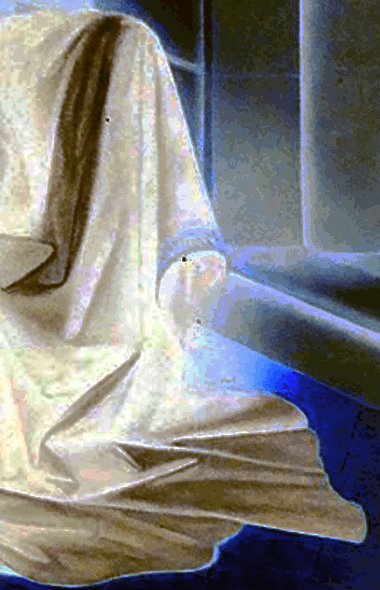
Latin tutor disguise |
- Bianca's suitors were frustrated
and began plotting ways to get Katherine married off so they
could court Bianca.
- Lucentio heard that Baptista was going to hire tutors for Bianca.
- He disguised himself as a Latin tutor named Cambio in order to
get near her.
- Another suitor, the elderly Gremio, hired the disguised Lucentio to woo Bianca on his behalf
but this didn't appear to go very far.
- A third suitor, Hortensio disguised himself as a music
teacher named Litio to
get closer to Bianca.
- To make things even more
complicated, Tranio, Lucentio's servant, dressed as Lucentio to convince Baptista to
allow Lucentio to marry her.
- So Lucentio was
playing Tranio to work on Bianca, and Tranio was playing
Lucentio to work on her father in order to help Lucentio.
- Lucentio believed that a third suitor would cause two of
the suitors to fight each other so that he would have full
access to Bianca.
- Tranio and the other suitors agree that they can be friendly toward one another, and they leave for drinks.
Lucentio tells Tranio that he has fallen in love with Bianca. In order to gain access to Bianca, they plan that Lucentio will pretend to be a schoolmaster, while Tranio will pretend to be Lucentio and present himself as another suitor for Bianca.
(encyclopedia.com) |
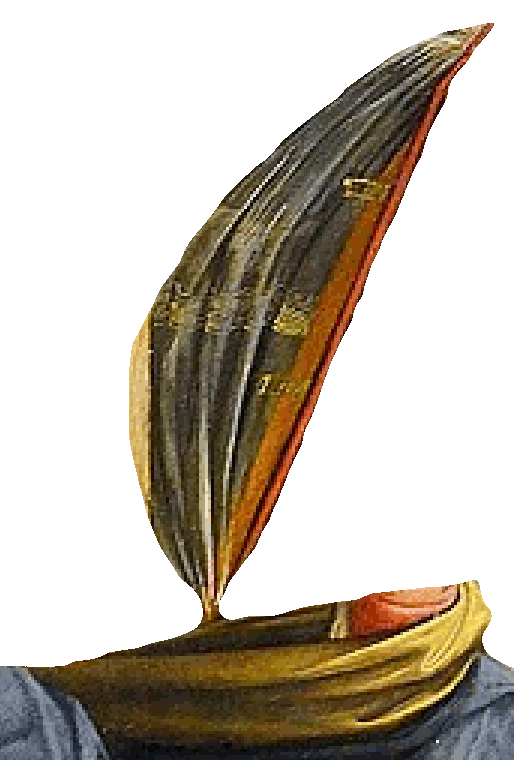
Arriving in Padua |
- Meanwhile, bachelor Petruchio, a
confident man from Verona, arrived in Padua.
-
Grumio is Petruchio's servant; he often misunderstands, or pretends to misunderstand.
- Petruchio was
in search of a wealthy wife.
- While in Padua, Petruchio visited
with his friend Hortensio, who was courting Bianca.
Petruchio insists that he cares nothing for looks, youth, or manners, so long as his bride is rich.
(encyclopedia.com) |
-
Hortensio mentioned that Katherine was not
married and was from a wealthy family.
- Hortensio viewed
this as an opportunity to get Katherine married off so he
could finally marry Bianca.

Gremio in disguise |
- Gremio, another suitor of Bianca's, let Petruchio know that
Katherine
had expressed that she was ready to find a
husband.
- In truth, Gremio, had nothing to recommend
of himself to Bianca except his wealth, since he was an old man,
and Bianca found him unattractive.
- Although, despite
knowing this, Gremio didn't want Petruchio to go anywhere near
Bianca.
- Petruchio presents himself to Baptista as a suitor for
Katherine and immediately opens negotiations about the
amount of money to be settled on her dowry.
- Katherine's father, Baptista, encouraged Petruchio to court
Katherine knowing this would free Bianca to marry one of her
many suitors.
-
Baptista is enthusiastic about Petruchio's offer, since
Katherine was a burden to him.
- She continually
quarreled with her sister and her snarly actions troubled
him.
When Baptista stipulates that Petruchio must first obtain Katherine's love, Petruchio replies that "that is nothing," adding that he is "as peremptory as she proud-minded" and predicting that she will "yield" to him.
(encyclopedia.com) |
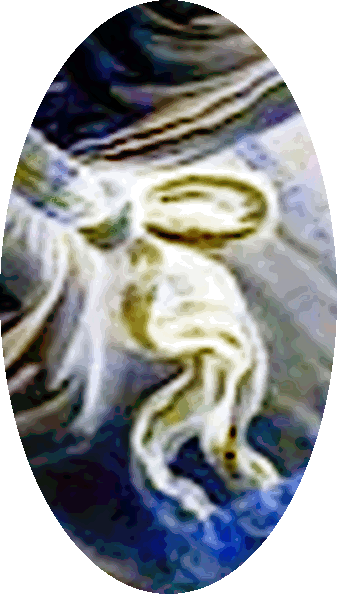
Petruchio wooing Katherine |
- Petruchio was determined to subdue
Katherine’s legendary temper and win her
generous dowry.
-
He negotiated marriage terms with Baptista
before he even met her.
- Katherine felt like she was being
auctioned off to make way for Bianca's suitors.
- After meeting for the first time, Katherine was resistant to
Petruchio's advances,
however, it did not deter him.
- Petruchio had already
devised quite a scheme, whatever she did, he would act as if she had done the opposite.
- If
she is negative, he would tell her she is sweet; if she
refused to marry, he would ask her to set the wedding date.
When Katherine enters, they become embroiled in an exchange of insults that soon turns to sexual innuendo. When she strikes him, he threatens to strike her back if she hits him again.
(encyclopedia.com) |

Petruchio meets with Katherine |
- The two had a stormy meeting.
- Katherine responds to Petruchio's compliments by telling him to leave.
- Although Katherine at first responded
negatively to Petruchio, he eventually won her over her using
his wit and masculine guiles.
- Katherine is attracted to
Petruchio in spite of herself, since clearly he is her match in a way that other men could not be.
-
She finds that Petruchio, unlike the men with whom she is used to sparring, is as quick-witted and biting as she.
- He saw himself as the tamer of this ‘curstest shrew’ who is as ‘loud as thunder.’
Think you this little din can daunt mine ears?
Have I not in my time heard lions roar?
Have I not heard the sea, puff’d up with winds,
Rage like an angry boar chafed with sweat?
(Shakespeare, Taming of the Shrew) |
- After the
turbulent event, Petruchio assured her father that the two had agreed to marry
and Baptista then gave his permission for Petruchio to marry
Katherine.
- Not long after, they set a wedding date.
- The taming of
Katherine begins.
When Katherine protests, Petruchio claims they have agreed that she will continue to behave shrewishly "in company." Baptista agrees to the marriage.
(encyclopedia.com) |
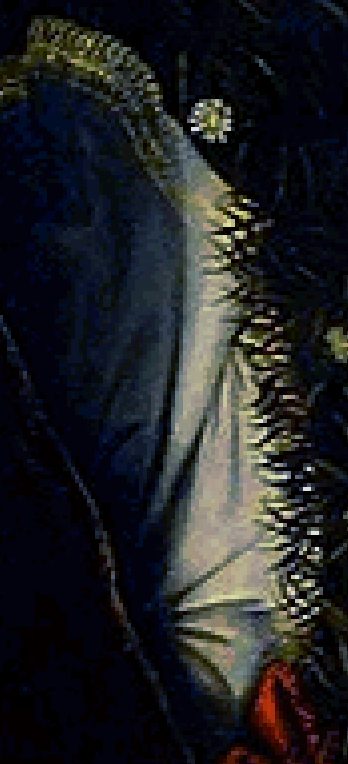
Katherine in bridal gown |
- While everyone prepared for the
wedding, the disguised suitors, Hortensio and Lucentio, were
competing against each other for Bianca's affections.
- On
her wedding day, Katherine unwillingly awaited her bridegroom
in the church.
- She wasn't real thrilled about getting
married off.
No shame but mine. I must, forsooth, be forced
To give my hand, opposed against my heart,
Unto a mad-brain rudesby, full of spleen,
Who wooed in haste and means to wed at leisure.
(Shakespeare, Taming of the Shrew) |
- The groom Petruchio, arrived
late to the wedding dressed in outlandish tattered clothes and
riding a broken-down horse.
- He was wearing a blue fez hat and a purple turtleneck but
noted that Katherine was marrying him, not his clothes.
- Baptista asks him to change into clothes that are more appropriate, but he refuses.
- It was a bizarre marriage ceremony.
To me she’s married, not unto my clothes.
Could I repair what she will wear in me,
As I can change these poor accoutrements.
(Shakespeare, Taming of the Shrew) |
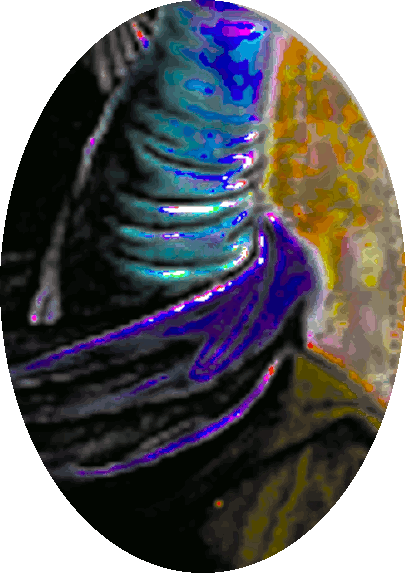
Petruchio dressed up in his fez hat |
- Petruchio behaved rudely to everyone but mainly offstage.
- Gremio complained that Petruchio swore in church, struck the priest, guzzled the wine and threw the remainder in the sexton's face, and kissed the bride noisily.
- After the ceremony, before the wedding dinner even began,
Petruchio immediately decided to leave for his home in Verona with
Katherine.
Gentlemen and friends, I thank you for your pains.
I know you think to dine with me today
And have prepared great store of wedding cheer,
But so it is, my haste doth call me hence,
And therefore here I mean to take my leave.
(Shakespeare, Taming of the Shrew) |
- The wedding guests were confused and had to celebrate
without the bride and groom.
- Katherine was more than
displeased and expressed it, of course.
- Petruchio
overrode her objections by saying he was a master 'of what
was his own' and pretending to protect her against others
desires to detain her.
- Once they are gone, the wedding party wonders how two such people ever got married, and Baptista turns his attention to Bianca's wedding.
- The taming of Katherine
goes into high gear.
O Kate, content thee. Prithee, be not angry.
(Shakespeare, Taming of the Shrew) |

Petruchio's house
in Verona |
- On reaching her new home,
Katherine
was mistreated by narcissist Petruchio and his servants who refused
to give her food or allow her to rest.
- Right away, he verbally abused and beat the servants and sent the dinner back uneaten, telling Katherine it
was burned and bad for their health
- Petruchio's goal
was to 'tame' Katherine, while pretending to act out of a
desire for her own good.
- Petruchio was intent on turning her
into his idea of the ideal wife.
I will be master of what is mine own.
She is my goods, my chattels; she is my house,
My household stuff, my field, my barn,
My horse, my ox, my ass, my anything..
(Shakespeare, Taming of the Shrew) |
- When Petruchio saught to ‘tame’ his new wife, he did so in the same way that he would one of these animals
(a boar) he compared Katherine to.
- Once he started the process of submitting
her to his will, Petruchio makes it chillingly clear that he
regarded her as a wild animal.
- Eventually, worn down by her husband's bullying behavior,
Katherine submitted and agreed to all Petruchio's whims.
Another way I have to man my haggard,
To make her come, and know her keeper’s call.
(Shakespeare, Taming of the Shrew) |
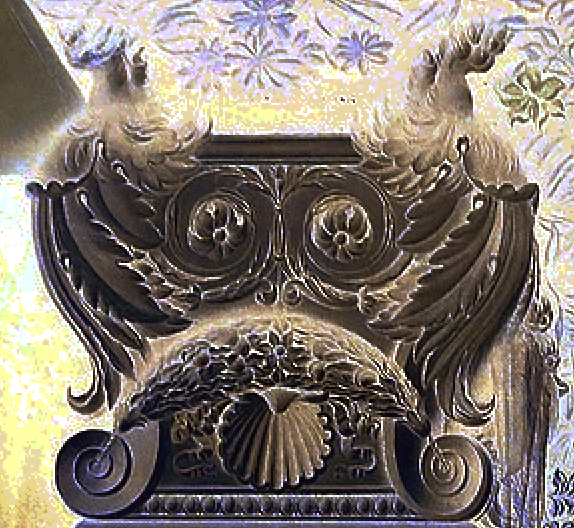
Petruchio acting like a monster |
- A ‘haggard’ is a wild female hawk
employed in falconry that are trained to come back to their keeper’s call.
- The main tools used to train the hawks were starving them
and depriving them of sleep.
- This makes the bird more and more dependent on its trainer and so turning its wildness into obedience.
He also insists that Katherine agree with him even when he contradicts the most obvious realities, leading even his friend Hortensio to comment on his unreasonableness.
(encyclopedia.com) |
- Petruchio also abused his own servants, notably Grumio,
and certainly demonstrated how unattractive his sharp temper
could be.
- Katherine, exhausted herself, attempts to speak out on the servants' behalf, asking Petruchio to be kinder and more patient.
- He decides that he will keep her from sleeping by complaining all night.
Where be these knaves? What, no man at door
To hold my stirrup nor to take my horse?
(Shakespeare, Taming of the Shrew) |

Katherine finds peace by playing dead |
- Petruchio hired a tailor to make
Katherine new clothes but then he found fault with everything
and refused to pay the tailor and sent him away.
-
Hortensio visited and Petruchio invited Katherine to eat with
them, but then he insisted she say thank you.
- Katherine learns, however reluctantly, that the only way
to find peace is to agree with everything that Petruchio says and do whatever he insists.
My tongue will tell the anger of my heart, or else my heart concealing it will break.
(Shakespeare, Taming of the Shrew) |
- She eventually agreed with everything Petruchio said,
however absurd.
- In exchange,
after a few weeks of this, she received his permission to visit her
father in Padua.
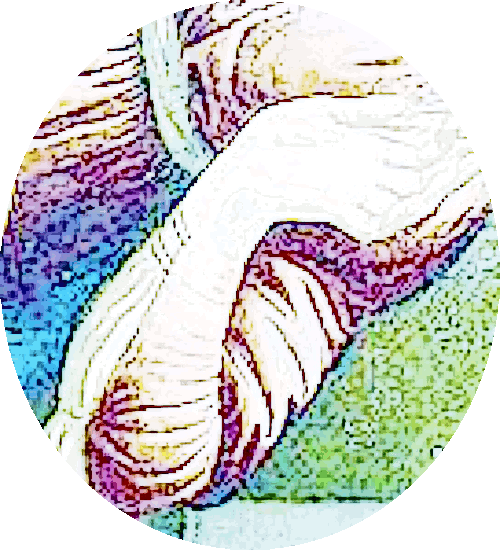
Katherine dressed in rags |
- Petruchio, in true narcissist manner, tested
Katherine's obedience, forcing her to repeat that the sun is the
moon and other absurd things.
- He let Katherine know that
if she didn't agree with him, they wouldn't go on the journey
back to Padua to see her family.
- Katherine recognized
the game that was being played, but only after Hortensio warned
her if she didn't agree, the journey would never start, she
submitted to Petruchio.
I know it is the sun that shines so bright. What you will have it nam'd, even that it is.
(Shakespeare, Taming of the Shrew) |
- On the journey back to Padua to visit her
family, the couple met an old man.
- Joking, Petruchio
insisted he was an old woman, and Katherine agreed and
called him a 'budding virgin.'
- Then they found out he
was Vincentio, Lucentio's wealthy father.
- Through the remainder of the
journey, Petruchio repeatedly tested Katherine's compliance.
- When they reached Padua, he threatened to return home unless she kissed him in the street.
Vincentio is Lucentio's father. On his way to Padua to visit Lucentio, he becomes the butt of a joke initiated by Petruchio and taken up by Katherine. On his arrival in Padua, he is nearly thrown into prison when Tranio, the Pedant, and Biondello all insist he is an imposter.
(encyclopedia.com) |
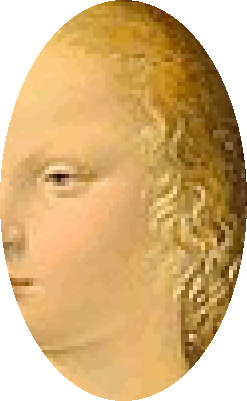
Younger sister Bianca |
- Meanwhile back in Padua, there was an
ongoing competition between Hortensio, Gremio, and Lucentio for Bianca’s hand in marriage.
- The only serious candidate was Lucentio, the son of a wealthy Florentine gentleman
because he was the only one Bianca cared about.
Katherine beats Bianca, whose hands are tied. When Baptista scolds Katherine, she accuses him of favoritism. A group of men come to the door, interrupting the squabble.
(encyclopedia.com) |
- Lucentio was so smitten with Bianca’s charms that he exchanged places with his clever servant, Tranio, in order to gain access to the woman he loved.
- Intimated by the importance of wealth in winning
Bianca's hand, since Baptista has vowed to
grant her to the suitor with the greatest wealth, Tranio poses as the son of a wealthy gentleman and steps into the competition for Bianca’s hand.
- That's Lucentio, Hortensio, Gremio and Tranio all vying
for Bianca.
Cambio and Litio take turns tutoring Bianca. While pretending to translate a passage from Ovid, Cambio reveals his identity to Bianca; Bianca responds by the same method, telling him, "presume not … despair not."
(encyclopedia.com) |

Tranio the clever
servant |
- When Litio (Hortensio) subtly lets her know of his love,
Bianca outright rejects him, and he vows to himself if she
will not love him he will find another woman.
- Tranio, who was still dressed as
Lucentio, needed a patriarch figure to
back up his claim of wealth.
- An elderly pedant (school teacher)
from Mantua posed as Vincentio, Lucentio's father, to give his
blessing to the match.
- Tranio continued to fool Baptista that he came from a
wealthy family.
- Tranio finally convinced Baptista to give him permission
to marry Bianca.
- Meanwhile, behind everyone's back, the real Lucentio has organised secret wedding
arrangements with Bianca.
- Lucentio's affections for
Bianca were sincere, and he courted her romantically and not because of her dowry.
Sacred and sweet was all I saw in her.
(Shakespeare, Taming of the Shrew) |

Tranio the trickster
exposed |
- Tranio’s tricks are eventually exposed, but not before Lucentio and Bianca
elope.
- When the real Vincentio arrives and discovers a pedant posing as him and Tranio in his son's clothes,
the pedant and Vincentio argue violently over which of them is Lucentio's father.
- Lucentio is forced to confess to the whole plan.
- He tells them about his marriage to Bianca.
- Hortensio, in the meantime, has
forsaken his pursuit of Bianca and married a wealthy widow,
after he sees Bianca flirting with character Cambio
(Lucentio).
- Tranio is left heartbroken and now had Lucentio's
father as his new enemy.
- Gremio didn't seem to hang
around long.
- They were all invited to Bianca and
Lucentio's wedding banquet.
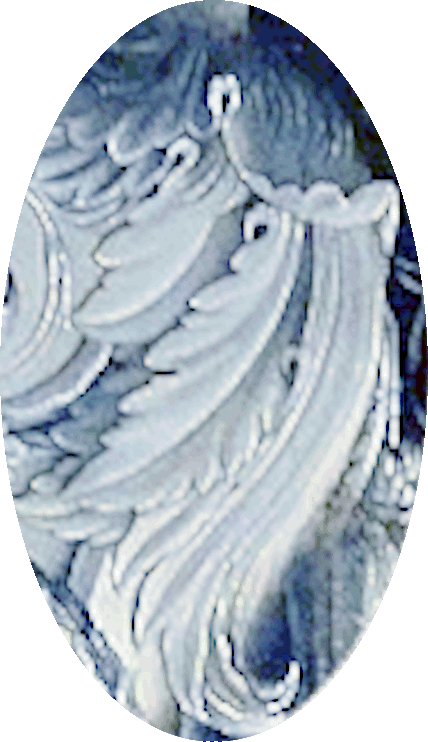
Bianca's and
Lucentio's wedding banquet |
- Petruchio and Katherine had returned to
Padua just in time to attend Bianca’s wedding
celebration and Baptista held a feast for both his daughters.
- At Bianca and Lucentio's wedding banquet, a number of the other guests imply that Petruchio had failed to get control over Katherine.
- As the men in the wedding party relaxed after their meal, Petruchio devised a scheme to prove whose wife
was the most obedient.
- Petruchio proposes a wager on which of the three new wives, Katherine, Bianca, or the widow Hortensio has married, is most obedient..

Obedient wife |
- Petruchio won a bet from the other gentlemen that
Katherine
would be more obedient than
all their wives.
- He called for Katherine and she came
promptly to his side.
Let’s each one send unto his wife,
And he whose wife is most obedient
To come at first when he doth send for her
Shall win the wager which we will propose.
(Shakespeare, Taming of the Shrew) |
- To prove his point he pointed out that
that both Bianca and the widow failed to come to their husbands when called.
- The widow that Hortensio married fought with Katherine
and refused to come when Katherine called her.
- Katherine returned to Petruchio immediately when he
called her.
Sir, my mistress sends you
word
That she is busy, and she cannot come.
(Shakespeare, Taming of the Shrew) |

Obedient wife giving a sermon |
- To show that she is indeed now more obedient, on
Petruchio’s orders, Katherine delivers a short sermon on the virtues of wifely obedience.
A woman moved is like a fountain troubled,
Muddy, ill-seeming, thick, bereft of beauty,
And while it is so, none so dry or thirsty
Will deign to sip or touch one drop of it.
(Shakespeare, Taming of the Shrew) |
- Katherine firmly told the other women what Petruchio considered
the proper duties of a wife.
But love, fair looks, and true obedience—
Too little payment for so great a debt.
Such duty as the subject owes the prince,
Even such a woman oweth to her husband;
And when she is froward, peevish, sullen, sour,
And not obedient to his honest will,
What is she but a foul contending rebel
And graceless traitor to her loving lord?
(Shakespeare, Taming of the Shrew) |
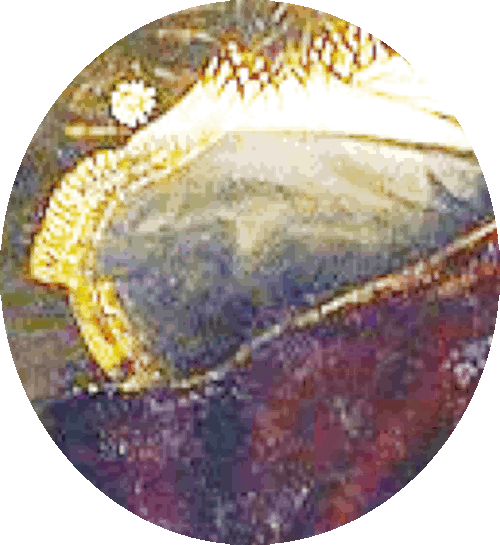
Obedient wife chastising wives |
- Once Katherine proved to be more obedient to her husband than the other
wives, she chastised all of them.
- At the end of Katherine's long speech in favor of male authority and female obedience, Katherine offers to place her hand under her husband's foot, to
'do him ease.'
I am ashamed that women are so simple
To offer war where they should kneel for peace Or seek for rule, supremacy, and sway
When they are bound to serve, love, and obey.
(Shakespeare, Taming of the Shrew) |
- After the nag, Katherine and Petruchio left
the wedding dinner to
consummate their marriage.
-
Petruchio praises her, kisses her, suggesting as they leave that Hortensio and Lucentio have a hard road before them in their marriages.
Now, go thy ways, thou hast tamed a curst shrow.
(Shakespeare, Taming of the Shrew) |

Wives all seem to
need taming |
- In the end, both Bianca and
Hortensio’s new wife ironically prove to be shrewish and need
taming.
- Katherine proves to be the most obedient wife and
already tamed.
Why, there’s a wench! Come on, and kiss me Kate.
(Shakespeare, Taming of the Shrew) |
- Back in the real world, the visiting actors hit the road
again and Christopher Sly is left alone to sleep off his dream of the taming of a shrewish wife.
- He left for home to tame his own wife, while disappointedly
discovering at the same time, he was a tinker and not a Lord.
- An illusion within an illusion.
Moral of the story!
- Narcissists have identity problems and will
slander, badmouth and use spellwork (insults and
gossip) to control someone else, in order to destroy
them or make them conform.
- Attitudes about gender roles have changed
drastically over time and so have the audience's
reaction to the play.
|
|
|

signed by Leonardo DaVinci
|
|

